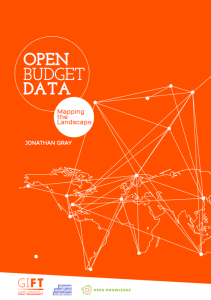Factsheet from the White House: “Today, the Administration is announcing a new “Smart Cities” Initiative that will invest over $160 million in federal research and leverage more than 25 new technology collaborations to help local communities tackle key challenges such as reducing traffic congestion, fighting crime, fostering economic growth, managing the effects of a changing climate, and improving the delivery of city services. The new initiative is part of this Administration’s overall commitment to target federal resources to meet local needs and support community-led solutions.
Over the past six years, the Administration has pursued a place-based approach to working with communities as they tackle a wide range of challenges, from investing in infrastructure and filling open technology jobs to bolstering community policing. Advances in science and technology have the potential to accelerate these efforts. An emerging community of civic leaders, data scientists, technologists, and companies are joining forces to build “Smart Cities” – communities that are building an infrastructure to continuously improve the collection, aggregation, and use of data to improve the life of their residents – by harnessing the growing data revolution, low-cost sensors, and research collaborations, and doing so securely to protect safety and privacy.
As part of the initiative, the Administration is announcing:
- More than $35 million in new grants and over $10 million in proposed investments to build a research infrastructure for Smart Cities by the National Science Foundation and National Institute of Standards and Technology.
- Nearly $70 million in new spending and over $45 million in proposed investments to unlock new solutions in safety, energy, climate preparedness, transportation, health and more, by the Department of Homeland Security, Department of Transportation, Department of Energy, Department of Commerce, and the Environmental Protection Agency.
- More than 20 cities participating in major new multi-city collaborations that will help city leaders effectively collaborate with universities and industry.
Today, the Administration is also hosting a White House Smart Cities Forum, coinciding with Smart Cities Week hosted by the Smart Cities Council, to highlight new steps and brainstorm additional ways that science and technology can support municipal efforts.
The Administration’s Smart Cities Initiative will begin with a focus on key strategies:
- Creating test beds for “Internet of Things” applications and developing new multi-sector collaborative models: Technological advancements and the diminishing cost of IT infrastructure have created the potential for an “Internet of Things,” a ubiquitous network of connected devices, smart sensors, and big data analytics. The United States has the opportunity to be a global leader in this field, and cities represent strong potential test beds for development and deployment of Internet of Things applications. Successfully deploying these and other new approaches often depends on new regional collaborations among a diverse array of public and private actors, including industry, academia, and various public entities.
- Collaborating with the civic tech movement and forging intercity collaborations: There is a growing community of individuals, entrepreneurs, and nonprofits interested in harnessing IT to tackle local problems and work directly with city governments. These efforts can help cities leverage their data to develop new capabilities. Collaborations across communities are likewise indispensable for replicating what works in new places.
- Leveraging existing Federal activity: From research on sensor networks and cybersecurity to investments in broadband infrastructure and intelligent transportation systems, the Federal government has an existing portfolio of activities that can provide a strong foundation for a Smart Cities effort.
- Pursuing international collaboration: Fifty-four percent of the world’s population live in urban areas. Continued population growth and urbanization will add 2.5 billion people to the world’s urban population by 2050. The associated climate and resource challenges demand innovative approaches. Products and services associated with this market present a significant export opportunity for the U.S., since almost 90 percent of this increase will occur in Africa and Asia.
Complementing this effort, the President’s Council of Advisors on Science and Technology is examining how a variety of technologies can enhance the future of cities and the quality of life for urban residents. The Networking and Information Technology Research and Development (NITRD) Program is also announcing the release of a new framework to help coordinate Federal agency investments and outside collaborations that will guide foundational research and accelerate the transition into scalable and replicable Smart City approaches. Finally, the Administration’s growing work in this area is reflected in the Science and Technology Priorities Memo, issued by the Office of Management and Budget and Office of Science and Technology Policy in preparation for the President’s 2017 budget proposal, which includes a focus on cyber-physical systems and Smart Cities….(More)”


